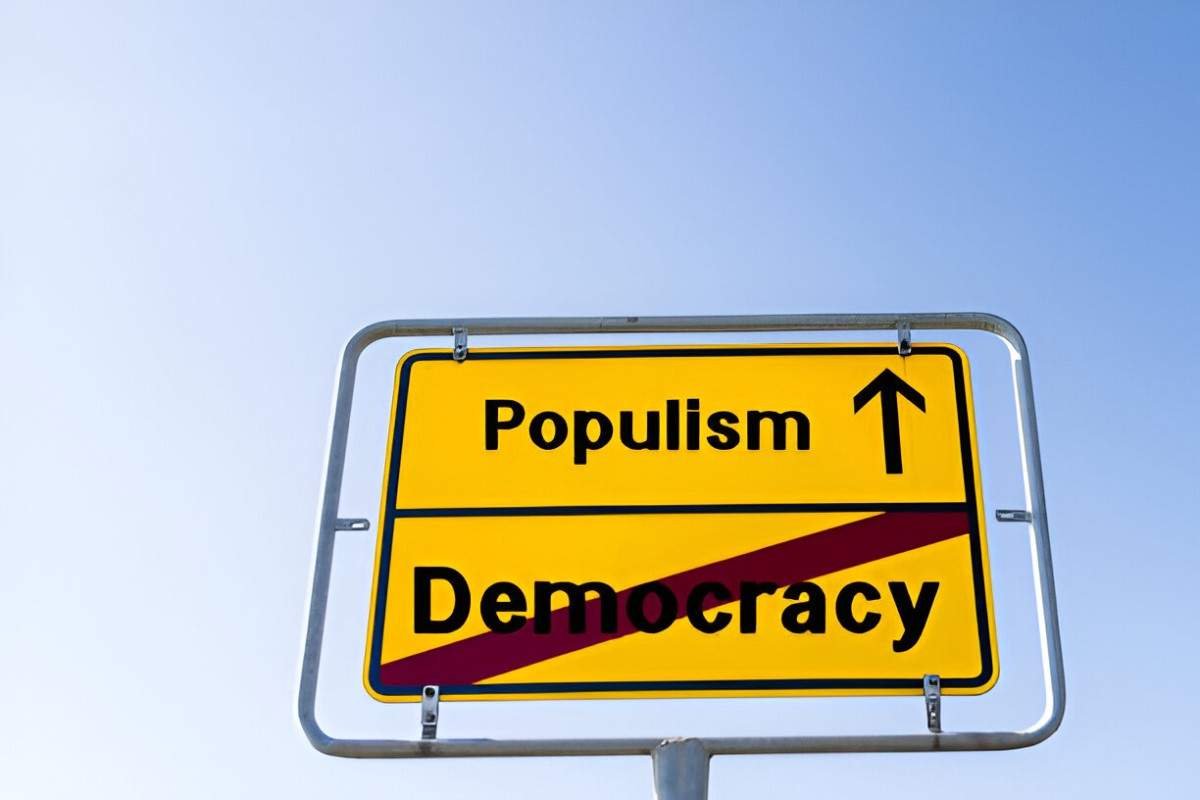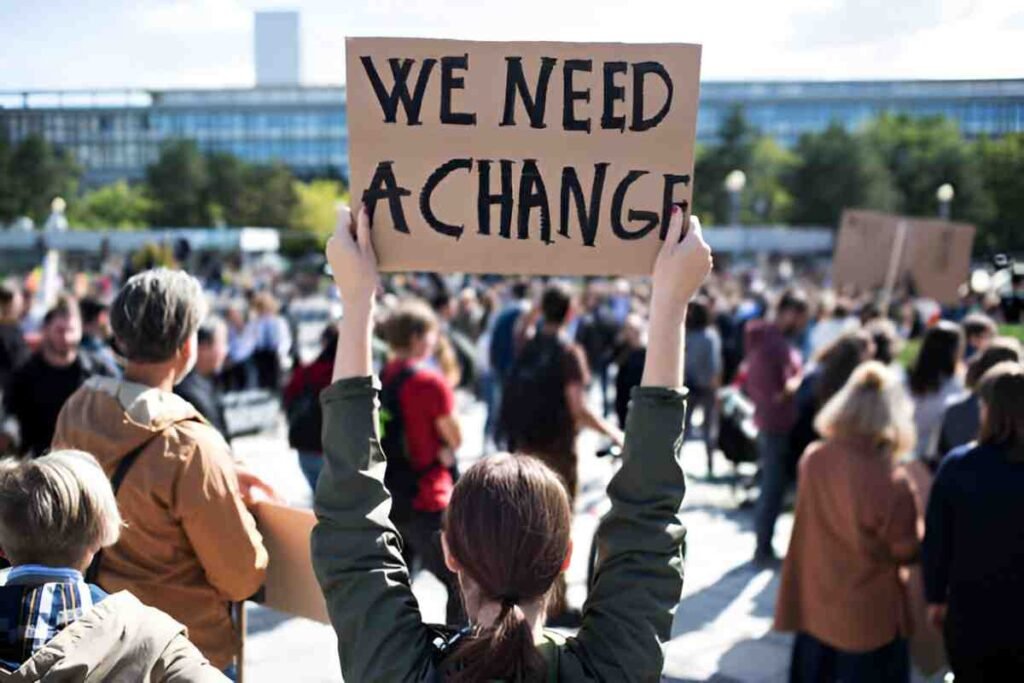today’s political landscape, the rise of populism is a phenomenon that stands out. Across continents, from the Americas to Europe and Asia, populist movements have gained significant traction. They challenge the established order, promising to return power to “the people” and often bending the traditional political structures to their will. In this long-form article, I aim to dissect the rise of populism worldwide—exploring its origins, manifestations, and implications for global politics.
Table of Contents
Understanding Populism
Before diving into specific cases, it is important to understand what populism entails. At its core, populism is a political approach that strives to highlight the division between “the people” and “the elite”. It is characterized by anti-establishment rhetoric, a focus on the sovereignty of the people, and often, a simplified, direct style of communication.
· Defining Populism
Populism does not align neatly with the traditional political spectrum of left or right. Instead, it is often defined by its oppositional nature and its reliance on charismatic leaders who claim to represent the true will of the people.
· Characteristics of Populism
Anti-elitism:
Populist leaders often rally against the political, economic, or cultural elite, presenting themselves as outsiders who will dismantle the system.
Nationalism:
Many populist movements emphasize national sovereignty and prioritize the interests of their nation above global cooperation.
Simplification:
Populist discourse tends to simplify complex issues into binary oppositions, presenting themselves as the solution to all problems.
I have observed that these traits recur across various movements, regardless of their geographic or political context, making populism a global phenomenon.
The Global Surge of Populism
To understand how widespread and impactful populism has become, examining specific cases across different regions provides valuable insights.
· Populism in the Americas
The Americas have been fertile ground for the rise of populist leaders. From North America to Latin America, the political climate has seen significant shifts influenced by populist agendas.
The United States: Trump’s Rise
Donald Trump’s election in 2016 marked a pivotal moment in contemporary populism. With his “Make America Great Again” slogan, Trump captured the frustrations of many Americans who felt left behind by globalization and technological change.
· Campaign Strategies
Trump’s campaign effectively utilized social media to bypass traditional news outlets, directly engaging with voters in unprecedented ways. His rallies, characterized by their energetic and sometimes controversial atmospheres, tapped into a deep-seated dissatisfaction with the political establishment. Witnessing these rallies firsthand, I noticed the palpable sense of connection and empowerment felt by his supporters.
Latin America: The Case of Bolsonaro
In Brazil, Jair Bolsonaro’s rise follows a similar pattern. His promises to crack down on crime and corruption, along with his critiques of the political elites, resonated with a populace disillusioned by economic stagnation and political scandals.
· Appeal to Law and Order
Bolsonaro’s rhetoric on restoring law and order and his unapologetically blunt communication style garnered him a loyal following. I observed how his ability to project strength and decisiveness appealed to a broad spectrum of voters seeking stability in a tumultuous environment [3].
· Populism in Europe
Europe has also witnessed a wave of populist movements, bringing dramatic shifts in its political landscape. Economic woes, immigration issues, and skepticism towards the European Union fuel these movements.
Brexit: A Populist Triumph
The United Kingdom’s decision to leave the EU in 2016, known as Brexit, embodies populist sentiments. The Leave campaign, championed by figures like Nigel Farage and Boris Johnson, capitalized on fears of immigration and desires for national sovereignty.
· Campaign Tactics
The campaign’s simplicity in slogans like “Take Back Control” resonated deeply with voters who felt alienated by Brussels’ bureaucracy. During my travels in the UK around the referendum, I engaged with many Leave supporters who emphasized a desire for autonomy and dissatisfaction with the status quo.
Hungary and Poland: Eastern European Populism
In Eastern Europe, leaders like Viktor Orbán in Hungary and the Law and Justice Party (PiS) in Poland have pursued populist agendas by asserting strong nationalistic and conservative policies.
· Redefining Democracy
Orbán’s concept of “illiberal democracy” challenges Western democratic norms, seeking to consolidate power while maintaining the facade of democratic processes. Poland’s PiS has pursued judicial reforms that critics argue undermine judicial independence. Observing these developments, it becomes evident that such moves are framed as efforts to protect national identity and values against external influences.
· Populism in Asia
Populist leaders in Asia also leverage similar themes of nationalism, anti-elitism, and cultural identity to gain support.
India: Modi’s Nationalism
Prime Minister Narendra Modi’s tenure in India is another vivid example of populism in action. His rise to power, fueled by promises of economic revival, anti-corruption, and strong nationalistic sentiments, has reshaped Indian politics.
· Hindu Nationalism
Modi’s affiliation with the Rashtriya Swayamsevak Sangh (RSS), a right-wing Hindu nationalist group, has contributed to a wave of cultural and religious nationalism. Policies and rhetoric under his administration often underscore Hindu cultural identity and prioritize interests aligned with this ideology. I have observed Modi’s ability to invoke a sense of pride and unity among his supporters, focusing on India’s millennia-old heritage.
The Philippines: Duterte’s Strongman Approach
Rodrigo Duterte’s rise to power in the Philippines mirrors the populist formula seen elsewhere: a tough stance on crime, direct and unfiltered communication, and positioning himself against the elite.
· War on Drugs
Duterte’s controversial war on drugs, marked by extrajudicial killings, exemplifies his strongman image. His approach has garnered both local support and international criticism. Through media coverage and local reports, I’ve seen how Duterte’s methods, while brutal, resonate with Filipinos tired of crime and corruption.
Analyzing the Underpinnings of Populism
Understanding why populism resonates so broadly requires examining the socio-economic, cultural, and psychological factors at play.
· Economic Discontent
Economic uncertainty and widening inequality are significant drivers behind the rise of populism. In both developed and developing nations, many people feel left behind by global economic changes.
· Globalization and Job Displacement
The outsourcing of jobs, the decline of traditional industries, and the rise of the gig economy have created economic discontent. Populist leaders often capitalize on this by promising to protect local industries and jobs from foreign competition. They advocate for policies that prioritize national economic interests over global trade agreements [8]. Conversations with individuals affected by these economic shifts reveal a deep sense of betrayal and a longing for the stability of past economic structures.
· Cultural and Identity Issues
Another critical factor is the fear of cultural erosion and identity loss. In many countries, rising immigration and increasing cultural diversity have sparked fears of losing national identity.
· Immigration and Nationalism
Populist movements often frame immigration as a threat to national culture and security. Leaders exploit these fears by promising to impose strict immigration controls and preserve traditional values. This rhetoric creates a sense of “us versus them,” fostering unity among the in-group while demonizing outsiders [9]. Observing rallies and public speeches, it is evident how these sentiments are mobilized to solidify support.
· Distrust in Established Institutions
Widespread mistrust in established institutions such as political parties, the media, and the judiciary provides fertile ground for populist movements.
· The Crisis of Representation
Many people feel that traditional political parties no longer represent their interests or address their concerns. Populist leaders position themselves as the true voice of the people, offering an alternative to the purportedly corrupt and out-of-touch establishment. The decline in trust in mainstream media and the rise of alternative media platforms also play a role in this dynamic, as these platforms often amplify populist messages. Engaging with various media outlets reveals how divergent narratives shape public perception and trust.
The Impact and Implications of Populism
As populism continues to shape political landscapes, its impact and implications are profound and far-reaching.
· Democratic Backsliding
One of the most pressing concerns is the potential for democratic backsliding. While populist leaders often come to power through democratic means, their governance can undermine democratic norms and institutions.
· Erosion of Checks and Balances
Populist governments frequently seek to weaken checks and balances by challenging the independence of the judiciary, controlling the media, and consolidating executive power. The justification often lies in the claim to restore true democracy by dismantling the elite-controlled system. However, this can lead to authoritarian tendencies and reduced political pluralism. Tracking these developments, the gradual erosion of democratic safeguards becomes increasingly apparent.
Social Division and Polarization
Populism can exacerbate social divisions and polarization, pitting different groups against each other.
· Identity Politics
The emphasis on national identity and the demonization of perceived outsiders contribute to social fragmentation. Populist rhetoric often promotes a zero-sum game mentality, where the empowerment of one group necessitates the marginalization of another. This creates a volatile social environment with heightened tensions and conflicts. Conversations with community members reveal the deep-seated animosities and heightened sense of otherness that populism can instigate.
· Policy Consequences
Populist policies can have significant and sometimes detrimental effects on both domestic and international fronts.
· Economic Nationalism
Protectionist policies aimed at defending local industries can lead to trade conflicts and economic isolation. While they may provide short-term relief to some sectors, they can lead to long-term economic inefficiencies and conflicts with trading partners. The shift towards economic nationalism disrupts global supply chains and can result in retaliatory measures from other nations, impacting global markets. Engaging with economic analysts and industry experts, it becomes evident how these policies can ripple through economies far beyond their intended scope.
· Environmental Policies
Populist leaders often prioritize immediate economic gains over long-term environmental sustainability. This can lead to the rollback of environmental regulations, increased exploitation of natural resources, and resistance to international climate agreements. Observing these policy shifts, one can see the broader implications for global environmental health and cooperation.
The Future of Populism
Given its widespread influence and significant impacts, the future trajectory of populism warrants close attention.
· Adapting to Change
As political landscapes evolve, so too will populist strategies. It is crucial to understand how populists might adapt to changing circumstances and leverage new opportunities.
· Technological Integration
Populists are likely to continue exploiting digital platforms to mobilize support and disseminate their messages. The rise of social media and other digital tools enables direct communication with the electorate, circumventing traditional media and presenting unfiltered messages. Observing recent trends, it’s clear that these platforms can both strengthen and challenge democratic discourse.
· Counteracting Populism
Addressing the rise of populism requires multifaceted approaches that go beyond political maneuvering.
· Restoring Trust in Institutions
Efforts to restore trust in democratic institutions are essential. Transparency, accountability, and responsiveness to citizens’ needs can help rebuild confidence. Engaging public participation in governance and decision-making processes can also mitigate feelings of alienation and disconnection.
· Addressing Economic Inequality
Tackling the root causes of economic discontent through policies that promote inclusive growth and equitable distribution of resources is crucial. Ensuring that economic benefits are broadly shared can alleviate the economic grievances that populists exploit. Conversations with economists and policymakers underscore the importance of structural reforms that address inequality at its core.
· Promoting Social Cohesion
Fostering social cohesion through dialogue and inclusive policies can counteract the divisive rhetoric of populism. Encouraging mutual understanding and respect between different groups can build a more resilient and unified society. Community initiatives that promote cross-cultural interactions and collaborations are vital in this regard.
Conclusion
The rise of populism worldwide is a complex phenomenon with deep roots in economic, cultural, and political factors. While populist movements claim to empower “the people” and address their grievances, they often pose significant challenges to democratic norms, social cohesion, and global cooperation. As I reflect on these developments, I am reminded of the importance of vigilance, critical engagement, and proactive measures to address the underlying issues fueling populism.
In navigating this intricate landscape, a balanced approach that considers the legitimate concerns of populist supporters while safeguarding democratic principles and promoting inclusive progress is essential. By understanding and addressing the multifaceted dimensions of populism, we can work towards a more just and resilient global political order.





